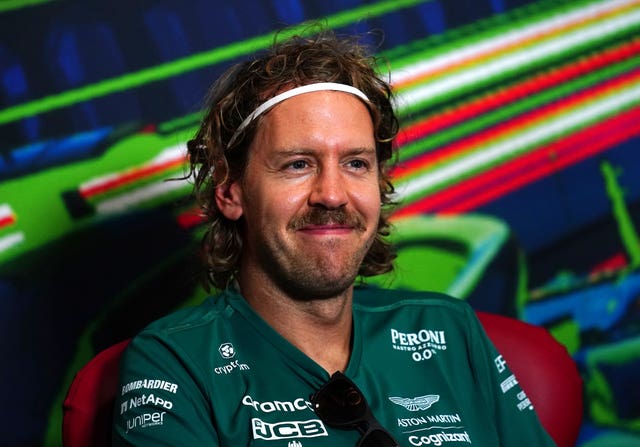
When Lewis Hamilton lines up on the grid for Sunday’s first race of his 17th Formula One season, he will do so armed with an incredible statistic.
Hamilton’s record haul of 103 victories is 13 more than the rest of the field put together – a 19-strong supporting cast which includes double world champions’ Fernando Alonso and Max Verstappen, and Valtteri Bottas, the man who drove identical Mercedes machinery for five years.
Yet, it is another item of numerical data which threatens to cast a shadow over the British driver’s present and future. No man has ever passed 300 appearances in F1 and entered the winner’s circle.
POV you’re @LewisHamilton. 🤩 Drop a 🙌 in the comments if you’re excited for the first race of 2023, Team. pic.twitter.com/Skm5w9Wfv6
— Mercedes-AMG PETRONAS F1 Team (@MercedesAMGF1) February 28, 2023
Michael Schumacher, Jenson Button, Kimi Raikkonen and Alonso – with 11 world championships between them – all tried. All of them failed. It leaves us to ponder: could this be the beginning of the end for F1’s most decorated star?
Both Hamilton, now in the final year of his £40million-a-season deal, and Mercedes are adamant it is not. We are led to believe that a contract extension is a mere formality.
But ahead of appearance number 311 for Hamilton, there is little to suggest that a new deal is on the horizon.
For all his brilliance, Hamilton comes at a cost. Could that be a factor? George Russell, a champion in the making, is not only cheaper, but he is the future, too. He won Mercedes’ only race last season. He outscored his more illustrious team-mate.

And what of father time? Only Alonso, 41, has been around the world more times than Hamilton. However, Toto Wolff has said on multiple occasions that he is not fazed by his star driver’s maturing years.
Hamilton originally said he had no intention to race into his forties, but as the landmark has grown nearer, his tack has changed.
“It is going to be really, really hard when I stop racing,” said Hamilton, who turned 38 in January. “I have been doing it for 30 years. When you stop, what is going to match that? There will be a big hole.”
But when Hamilton says he has been “doing it for 30 years”, what he really means is that he has been a serial winner for three decades.
Three world champions 🏆
Three mighty competitors 💪
We can't wait to see what @alo_oficial, @LewisHamilton and @Max33Verstappen can achieve this season! 👊#F1 pic.twitter.com/wkn8nLeo9u
— Formula 1 (@F1) February 27, 2023
Take last season away – his only campaign in F1 where he has failed to taste victory – and Hamilton knows little else.
But what happens when the victories dry up? What happens when you are pleased just to be on the podium? One year might be acceptable. But does two years of being best of the rest threaten one’s legacy?
“When you get to know the sport in the way I have done, and Lewis has done, winning and being at the top is what you strive for,” four-time world champion Vettel told the PA news agency last June.
“Does it excite you to finish eighth, or 12th or 13th? No it doesn’t, when you know you have been first so many times – and in Lewis’ case more than any other guy.”

A month after the interview, Vettel, who failed to revive former glories with an underwhelming two-season spell at Aston Martin, announced enough was enough. He retired at the end of the year after 299 races.
Hamilton finished sixth in the standings last season, an eye-watering 214 points behind Verstappen. Mercedes were a distant third behind Red Bull and Ferrari.
After four hours of last week’s sole test in Bahrain before Sunday’s first race, also in the Gulf Kingdom, Wolff proclaimed he had a machine fit to carry Hamilton to a record eighth world title.
But by the end of the week, Hamilton alarmingly spoke of “underlying” issues with his Mercedes – an evolution of last season’s machine that he could not wait to consign to history.
Back in 🇧🇭 pic.twitter.com/OpEisfNRMD
— Lewis Hamilton (@LewisHamilton) February 23, 2023
Verstappen and Red Bull remain the team to beat. Ferrari look to be next up, while Mercedes might possibly have slipped further down the pecking order.
The sport’s bosses will hope not. A Verstappen v Hamilton rematch is brilliant for business. A second year of Verstappen dominance is not.
And for Hamilton, another year watching in the wings could be enough to convince him that his remarkable career might have reached its natural conclusion.


Comments: Our rules
We want our comments to be a lively and valuable part of our community - a place where readers can debate and engage with the most important local issues. The ability to comment on our stories is a privilege, not a right, however, and that privilege may be withdrawn if it is abused or misused.
Please report any comments that break our rules.
Read the rules here